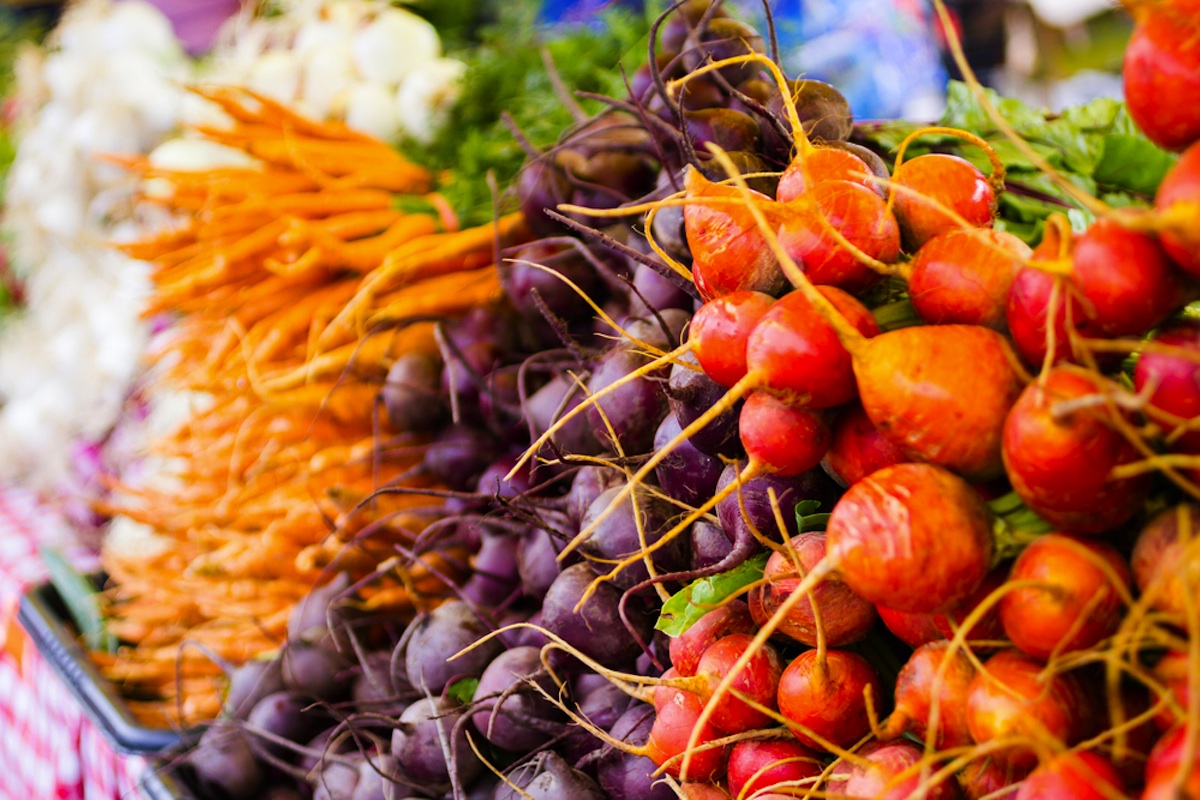Harvard Study Finds Five Daily Produce Servings Enough to Improve Lifespan

Fresh produce photo via Shutterstock
A recent study from the Harvard School of Public Health (HSPH) found that while eating five servings of fruits and vegetables per day lowers an individual’s risk of mortality by as much as 25 percent, that percentage does not change as servings increase past five.
“What was interesting is that the benefit of the fruits and the vegetables plateaus at around five servings a day, and further increasing fruit and vegetable consumption doesn’t appear to come with additional benefit,” explains senior author Frank Hu, a professor of nutrition and epidemiology at HSPH. “The bottom line of the study is that increasing consumption of fruits and vegetables is beneficial for longevity, and it looks like five servings a day is probably sufficient for most people.”
What’s less clear, Hu says, is precisely why that plateau happens. Finding an explanation is complicated by the fact that the vast majority of people do not consume more than five servings each day in the first place, making it difficult to study what happens past that point. Hu says he and his fellow researchers plan to conduct further research on the topic, examining different varieties of fruits and vegetables as well as “the mechanisms through which fruits and vegetables confer health benefits.” Until then, their theory is that the body simply cannot use excess servings in fighting mortality.
“A potential reason is that when we eat large amounts of fruits and vegetables, the availability of nutrients and other biological compounds may have reached a plateau because the absorption and digestion of fruits and vegetables may reach certain plateaus,” Hu says. “This is still speculation at this point, but I think it’s a possibility.”
Still, Hu is quick to point out that because the study looked only at mortality, it is not a reason to scale back fruit and vegetable consumption. “This study doesn’t mean that you should stop at five [servings], because we only looked at total mortality and cardiovascular mortality,” Hu notes. “It’s possible that higher amounts of fruits and vegetables may have other benefits on other outcomes,” such as lowering blood pressure and risk of stroke.
Furthermore, Hu points out that the possibility of eating more fruits and vegetables than necessary pales in comparison to the reality of our culture, which is that most people get only two or 2.5 servings each day. “From a public health point of view,” he says, “it’s really not relevant to debate whether it’s five or it’s seven, because the overall consumption is so low, so you have so much room to improve.”


